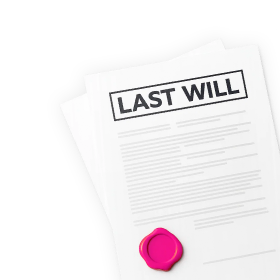When you’re just starting out in your career and don’t really have any assets or a family of your own yet, the thought of a will can seem far out, unnecessary and expensive. You’re probably not dying any time soon and you may not believe you have any significant assets, so do you really need to create a will now? These 5 questions about wills are recommended to any young Calgarian, regardless how much time or assets you have
1. When Should you Make a Will?
You might not think it’s important to make a will when you’re young. However, as a young adult that’s anticipating building their career, growing their assets and putting down some roots, it’s always better to have a will than not to. If you’re in good health you’ll likely be around for a long time. But we can’t predict the future so it’s best to prepare just in case something unexpected happens. While it’s better to have a will than not have one, most people tend to create or update their wills at certain life events.
If You’re Married or Have Children
If you’re married or have children, it’s important to make sure you have a plan for them if anything happens to you. In most cases, your spouse will likely inherit your assets and would continue on as the sole custodian of your kids, but that isn’t 100 percent guaranteed. It’s best to have it in writing. And if you want your children to inherit certain assets—like you want your oldest daughter to have your wedding ring that was your grandmother’s—then you want to explicitly state that in your will. It can become complicated when you’re not married to the other parent of your children or if you’re remarried. Without a will it can be difficult and stressful for them to work it all out. Creating a will clarifies what you wish custody arrangements to be and who will receive all or part of your estate. Not sure what to include in your will? Working with a lawyer specialized in wills and estate planning will ensure you have all your bases covered.
If You Have Assets
If you have assets, even if you’re single and don’t have kids, it’s important to have a will. Your home, car, stocks, bonds, retirement savings or even your checkings/savings accounts will need to go somewhere. Personal property such as jewelry or family heirlooms could potentially be split up without consideration as to who they would mean the most to. If you have assets or possessions that you want passed onto a specific family member, you need to have a will.
If You’re Young, Single and Don’t Have Major Assets
“I don’t need a will because I don’t own anything of value.” We’ve heard this many times and it’s not only heartbreakingly sad to hear, it’s also usually wrong. While it’s less important to create a will when you don’t have many assets and are single without children, you likely have some assets you haven’t considered including those sentimental and heirloom items. It also helps to answer the question of who will oversee your estate. Someone will need to be in charge and make decisions and you might want to have a say in that. You might also care about what happens to you after you die. If you have any special requests you’ll want to put those in your will so they can be known and respected.
2. What Happens When You Die Without a Will?
In Calgary, Alberta law governs what happens to your property and assets. Typically, your entire state will go to your spouse. If you have no spouse, then your assets are divided equally among your children. If your children are not living but you have grandchildren who are, they are entitled to an equal share of what their parents would have received. If you are single (meaning no spouse or adult interdependent partner) and have no children or grandchildren, your estate will be distributed to your nearest kin. By default, that would be your parents. If you don’t have a living parent, it would be distributed evenly between your brothers and sisters. If you don’t have surviving parents or siblings, the Province of Alberta has outlined additional provisions. If you died instate (meaning without a valid will), the legal proceedings and emotional tension over your estate can bring unnecessary strain to your family and friends during an already stressful time. This can be avoided if you have an established will.
3. How Long Does it Take to Create a Will?
The time it takes to create a will can depend on your situation and if you are creating one yourself or working with an Calgary wills lawyer. A simple will can take you less than an hour to create online if you choose the DIY method. But if not done correctly or adequately enough, this can cost your family a lot of stress down the line as they hire lawyers to sort out inaccuracies. For more complex situations, you will likely spend more time discussing different scenarios, finding and documenting your assets and thinking through what needs to be included in your will. If you work with a wills & estate lawyer, the time and stress it takes to create a will is cut down substantially. An estate planning lawyer is experienced in many different situations to help you make those tough decisions and ensure you are including everything that is needed. At One80 Law, a typical will can be completed with less than an hour of your time.
4. What are the Benefits of Having a Will?
We’ve already discussed what happens if you don’t have a will, but what are other benefits to having a will?
- Determining who will receive your property. This is especially important if you don’t want to leave everything to your spouse or next of kin.
- Naming who will be the guardian of your children. If you are not married or if your spouse and you die at the same time, the single most important thing you want to decide is who will take care of your children.
- Who will be your executor. This is important to have someone you trust to carry out your wishes and administer your estate.
- You can leave a trust for your children or grandchildren. In some cases, you want to make sure your children are taken care of when they are older. Setting up a trust for them can take care of them financially well into their future.
5.When Should You Update an Existing Will?
- If you already have a will, you will likely need to make updates over the course of your life. A will can be updated at any time when a situation changes or if you simply change your mind. These are some of the biggest life changes when you should consider updating your will:
-
- Getting married
- Getting a divorce (or are thinking about a divorce)
- Having children
- Buying a home
- Death of a person named in your estate
- Having a falling out with someone named in your estate
- A change in your assets, such as investments or an inheritance
- If you moved out of the province or to a different country
- A change in tax laws
- Approaching retirement
- An illness
- Your children have kids of their own
A good rule of thumb is: Any time your financial situation changes or something changes with a named heir, you should consider updating your will. It’s also a good idea to review your will every three to five years.
If you’re interested in finding out more about arranging Wills, you might be wondering how much does a Will cost? We’ve covered this in our blog post.
If you’re ready to create or update your will, our experienced lawyers are here to help. Contact us and make your will today
Disclaimer: The content on this website is provided for informational purposes only and does not constitute legal advice. To seek legal advice, please contact One80 Law directly to retain a lawyer https://one80law.ca/contact/







